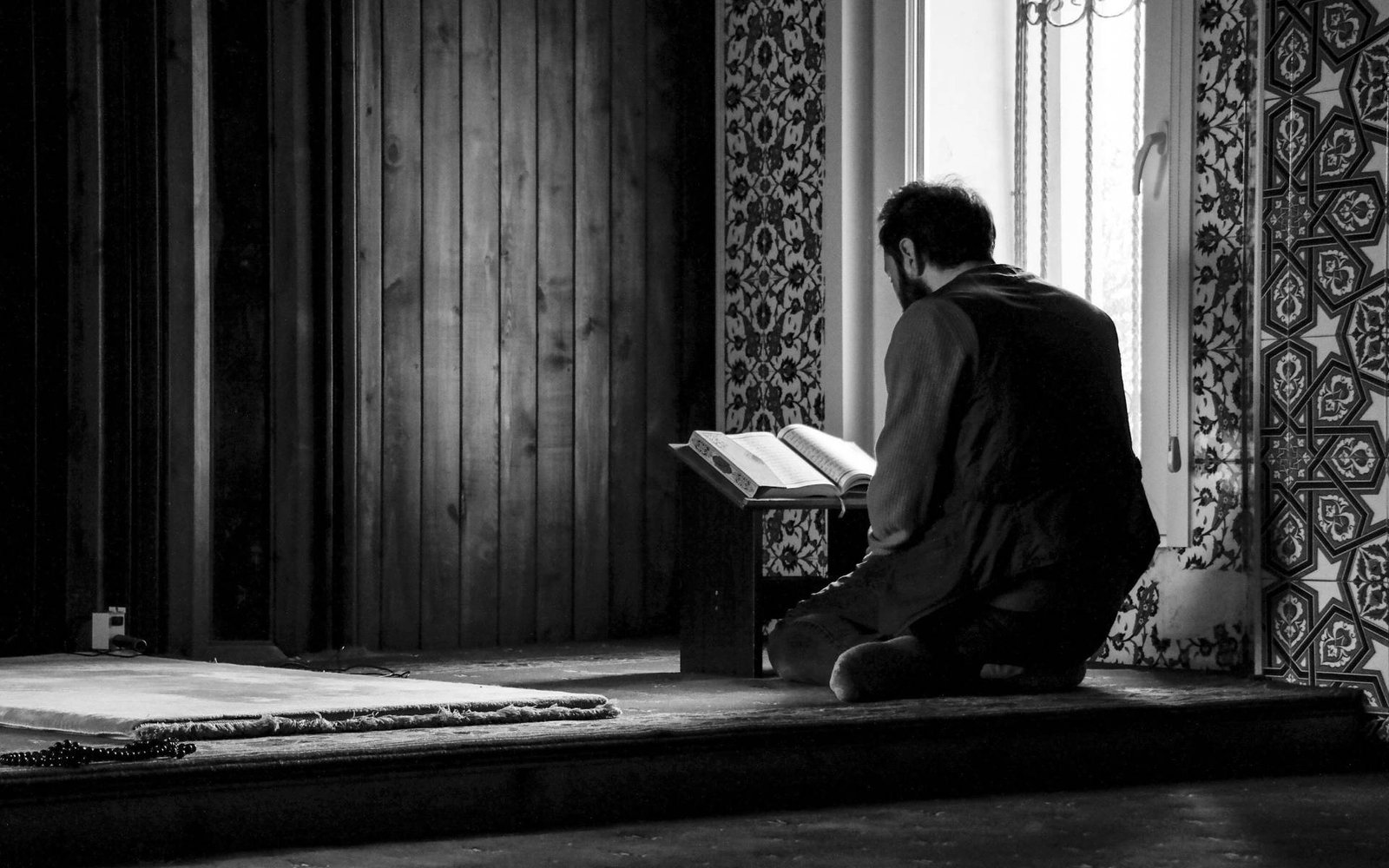Some of the hadiths found in Sahih Bukhari relate to the prohibition of music and the use of musical instruments, sparking extensive debate among scholars regarding their Islamic legal status. hadith about music in Bukhari, Abu Bakr al-Siddiq (may Allah be pleased with him) narrates that he entered upon the Prophet (peace be upon him) during the days of Mina, where two young girls were playing the tambourine and singing. Abu Bakr criticized this, to which the Prophet (peace be upon him) responded, “Leave them, for these are the days of Eid and days of Mina.” This Hadith about music in Bukhari reflects aspects of the scholarly discourse on the permissibility or prohibition of music in Islam, highlighting the Prophet’s tolerance and understanding of social and cultural practices during special occasions such as Eid and celebrations.
Hadith about music in bukhari

In Sahih Bukhari, there are several narrations attributed to the Prophet Muhammad (peace be upon him) concerning the issue of music and musical instruments. One such hadith narrated by Abu Bakr al-Siddiq (may Allah be pleased with him) mentions an incident during the days of Mina: “Abu Bakr came to my house while two small Ansari girls were singing beside me the songs of Buath.”
(حَدَّثَنَا عَبْدُ اللَّهِ بْنُ مَسْلَمَةَ، حَدَّثَنَا أَبُو عَوَانَةَ، عَنْ سُفْيَانَ، عَنِ الزُّهْرِيِّ، عَنْ عُرْوَةَ، عَنْ عَائِشَةَ، قَالَتْ دَخَلَ أَبُو بَكْرٍ الصِّدِّيقُ عَلَىَّ، وَعِنْدِي اثْنَتَانِ مِنْ صَبِيَّاتِ الأَنْصَارِ يَغْنِيَانِ بِمَدِيحِ بُعَاثٍ.
” Another significant hadith states: “Allah’s Apostle (p.b.u.h) came to my house while two girls were singing beside me the songs of Buath.
” These narrations illustrate the Prophet’s response to music in different circumstances, highlighting his understanding and tolerance in specific contexts such as festive occasions. These hadiths are pivotal in discussions among scholars regarding the permissibility or prohibition of music in Islam, reflecting varying interpretations and scholarly viewpoints on the matter.
BOOK FREE SESSION
Music is haram in Islam proof

This Hadith about music in bukhari highlights prophetic warnings about the deterioration of faith in later times when people began to justify prohibited actions such as wearing silk (for men), consuming alcohol, and engaging in musical activities. Prophet Muhammad ﷺ foretells that as the Hour approaches, there will emerge groups from his Ummah who will indulge in these forbidden practices under the guise of misinterpretations.
Hadith about Music in Sahih al-Bukhari:
Narrated by Abu Malik al-Ash’ari: Allah’s Messenger ﷺ said, “There will be among my Ummah people who will consider as permissible illegal sexual intercourse, the wearing of silk (for men), the drinking of alcoholic drinks, and the use of musical instruments.” (Sahih al-Bukhari, Book of Drinks, Hadith 5590)
حدثنا أبو مالك الأشعري: قال رسول الله ﷺ: “سيكون في أمتي قوم يحلون الزنا ولبس الحرير وشرب الخمر واستعمال الآلات الموسيقية.” (صحيح البخاري، كتاب الأشربة، الحديث رقم 5590)
This Hadith about music in Bukhari reflects aspects of the scholarly discourse on the permissibility or prohibition of music in Islam, highlighting the Prophet’s tolerance and understanding of social and cultural practices during special occasions such as Eid and celebrations. , the Prophet ﷺ clearly delineates between what is lawful and what is prohibited in our beliefs and actions. He warns that with the passage of time and as the Day of Judgment nears, some individuals will distort religious rulings to justify engaging in sinful activities. The term “from my Ummah” indicates that these individuals will be part of the Muslim community but will deviate by making unlawful acts seem permissible through corrupt interpretations. Among the first of these prohibitions mentioned are adultery, wearing silk for men, alcohol consumption, and the use of musical instruments. Each of these acts is explicitly forbidden in Islamic teachings due to their detrimental effects on individuals and society.
The Hadith about music in Bukhari also mentions a scenario where some people will neglect a needy person who comes to them seeking help, telling him to come back later. This neglectful behavior will incur Allah’s displeasure upon them, leading to their punishment. Furthermore, it prophesies that some individuals will be transformed into animals like apes and pigs due to their disobedience and corruption.
This Hadith serves as a stark reminder to Muslims to uphold the teachings of Islam, avoid major sins, and not fall into the trap of justifying unlawful actions. It underscores the importance of sincere adherence to Allah’s commands and the teachings of His Messenger ﷺ to safeguard one’s faith and avoid the severe consequences of deviating from righteousness.
BOOK FREE SESSION
10 Interesting Facts About Music in Hadith About Music in Bukhari

Here are 10 interesting facts about music as mentioned in Sahih al-Bukhari:
The hadith about music in Bukhari presents Prophet Muhammad’s clear prohibition of musical instruments, aligning it with other major sins such as illegal sexual intercourse, wearing silk for men, and alcohol consumption.
This Hadith about music in bukhari, found in the Book of Drinks, Hadith 5590, underscores the gravity of music’s prohibition in Islamic teachings, emphasizing its categorization as a major sin.
Scholars universally agree on the prohibition of musical instruments based on this and other authentic hadiths, reflecting a consensus across Muslim communities globally.
The hadith serves as a reminder of the spiritual consequences associated with indulging in music, cautioning against activities that distract from the remembrance of Allah and adherence to Islamic principles.
Despite the prohibition, diverse cultural expressions within Muslim communities have evolved, sometimes blending regional musical traditions with permissible forms of artistic expression.
Modern debates continue regarding the role of music in Muslim societies, with varying perspectives on its permissibility to influence cultural and religious practices.
Understanding the prophetic teachings on music in Sahih al-Bukhari is fundamental in Islamic education, guiding believers in their adherence to religious principles and moral conduct.
The hadith’s mention of music underscores its significance in shaping Islamic beliefs and practices, reflecting broader discussions on spirituality, culture, and religious adherence.
This hadith remains a crucial reference point for discussions on permissible and impermissible actions in Islam, providing insights into the Prophet Muhammad’s teachings on maintaining spiritual purity and avoiding moral pitfalls.
Narrated Abu Bakr during Id ul-Fitr or Id ul-Adha, he heard singing beside me the songs and playing musical instruments. Abu Bakr became inattentive and was protestingly against it. The Prophet p.b.u.h. turned his face towards Abu Bakr and said, “O Abu Bakr, leave them for every nation has an Id (i.e. festival), and this day is our Id.” This indicates the allowance of music and singing during festive occasions under specific contexts.
Furthermore, it is mentioned that the Prophet warned about people considering alcoholic drink and musical instruments as lawful, and that these actions would be destructive. He also referred to the war between the two tribes, which implies that such behavior could lead to conflict and spiritual degradation.
Thus, these hadiths reflect a balanced view where the Prophet Muhammad, p.b.u.h., provided guidance to ensure the community’s spiritual well-being while allowing certain cultural expressions during festive times, maintaining a clear distinction between permissible enjoyment and actions leading to harm.
BOOK FREE SESSION
The Impact of Music on Bukhari Culture
Hadith about music in Bukhari reflects varying interpretations among scholars regarding its permissibility in Islamic culture. Some scholars reference a hadith reported by al-Bukhari stating, “Among my ummah there will certainly be people who permit zinaa, silk, alcohol and musical instruments “إن من أمتي من يحل الزنا والحرير والخمر والمعازف…”
Hadith about music in bukhari is understood by some to imply the prohibition of musical instruments alongside other forbidden acts.
Interpretations differ widely, with some arguing that this hadith signifies a prohibition of music due to its association with forbidden practices like zinaa and alcohol. However, others, including scholars such as Imam Ghazzali and Ibn Hazm, maintain that this hadith does not explicitly prohibit music, allowing for a more lenient view.
Bukhari culture, situated in Uzbekistan, historically represents a convergence of Persian, Turkic, and Islamic influences. This diverse heritage has shaped a rich musical tradition that blends Central Asian melodies, Persian poetic styles, and Islamic musical forms.
Music serves as a significant cultural expression in Bukhari society, fostering community cohesion through social gatherings, weddings, and religious festivals. It plays a vital role in enhancing social interactions and celebrating cultural identity.
Over time, Bukhari music has evolved, integrating modern influences while preserving traditional elements like Shashmaqam, a genre combining poetry and instrumental music. This continuity reflects a dynamic cultural adaptation amidst changing societal landscapes.
The impact of music on Bukhari culture underscores a nuanced relationship influenced by historical narratives, religious teachings, and artistic expressions. It continues to resonate as a vital component of cultural identity, bridging past traditions with contemporary practices in Uzbekistan’s cultural tapestry.
Read more:
Which Hadith About Music in Bukhari Says Music is Haram?
This issue revolves around understanding and interpreting prophetic traditions in Islam. The hadith mentioned states: “Among my ummah there will certainly be people who permit zinaa, silk, alcohol and musical instruments…” Some scholars consider this as evidence that playing musical instruments is prohibited in Islam, interpreting “who permit” to mean allowing what is forbidden, alongside other prohibited acts like zina, alcohol, and silk.
On the other hand, others find this interpretation unconvincing. They point to other hadiths indicating the Prophet Muhammad (peace be upon him) had a tolerant stance towards music. Among them is the American Islamic researcher Ikram Hawrami, who argues that this specific hadith lacks strong support and therefore cannot nullify other hadiths showing the Prophet’s tolerance towards music.
Additionally, renowned scholars such as Imam Ghazzali, Abu Bakr ibn al-Arabi, Ibn al-Qaisarani, Rumi, Abu Hamid al-Ghazali, and Ibn Hazm have suggested that listening to music is not prohibited (halal). Imam Ghazzali, for example, explicitly stated: “All these Ahadith are reported by al-Bukhari, and singing and playing are not haram.”
Read about: Hadith on poverty and kufr: first time you know
BOOK FREE SESSION
Hadith About Music In Bukhari Conclusion
the issue of music in Islam, influenced by interpretations of Hadiths from Sahih al-Bukhari, remains a scholarly debate. Some scholars view certain Hadiths, including those mentioning musical instruments among prohibited acts, as evidence of its prohibition. However, others like Imam Ghazzali and Ibn Hazm interpret other prophetic traditions more leniently, suggesting that music itself may not be inherently prohibited. This diversity reflects varying viewpoints among scholars on the permissibility of music in Islamic practice.
Hadith About Music In Bukhari FAQs
What Does the Hadith in Bukhari Say About Music?
The hadith about music in Bukhari states: “Among my ummah, there will certainly be people who permit zinaa, silk, alcohol, and musical instruments…” This hadith is often interpreted as mentioning musical instruments alongside other prohibited actions, implying a stance against them.
How Should Muslims Interpret the Hadith About Music in Bukhari?
Muslims interpret the hadith about music in Bukhari in various ways. Some scholars view it as prohibiting musical instruments due to its mention alongside clearly forbidden acts like zinaa and alcohol. Others argue for a more nuanced interpretation, suggesting that the context and additional hadiths indicating the Prophet’s tolerance towards certain forms of music allow for a broader understanding.
Are There Different Views on the Hadith About Music in Bukhari?
Yes, there are divergent views among Islamic scholars regarding the hadith about music in Bukhari. While some consider it as clear evidence prohibiting musical instruments, others question its scope and applicability. Scholars like Imam Ghazzali and Ibn Hazm have pointed to other hadiths showing the Prophet’s leniency towards music that is not associated with immoral behavior.
Why is the Hadith About Music in Bukhari Controversial?
The hadith about music in Bukhari sparks controversy due to its interpretation and implications. It raises questions about what constitutes permissible music in Islam and how strictly the prohibition on musical instruments should be applied. The diversity of opinions among scholars reflects differing interpretations of Islamic teachings and cultural practices over time.
Can You Provide More Context on the Hadith About Music in Bukhari?
The hadith about music in Bukhari is part of a broader collection of sayings attributed to Prophet Muhammad (peace be upon him). It appears in a context discussing behaviors that some members of the ummah (community) will permit, including zinaa (adultery), silk, alcohol, and musical instruments. This context influences how scholars interpret its implications for Islamic law and cultural practices related to music.
Read About:
Hadith About Respect Of Elders